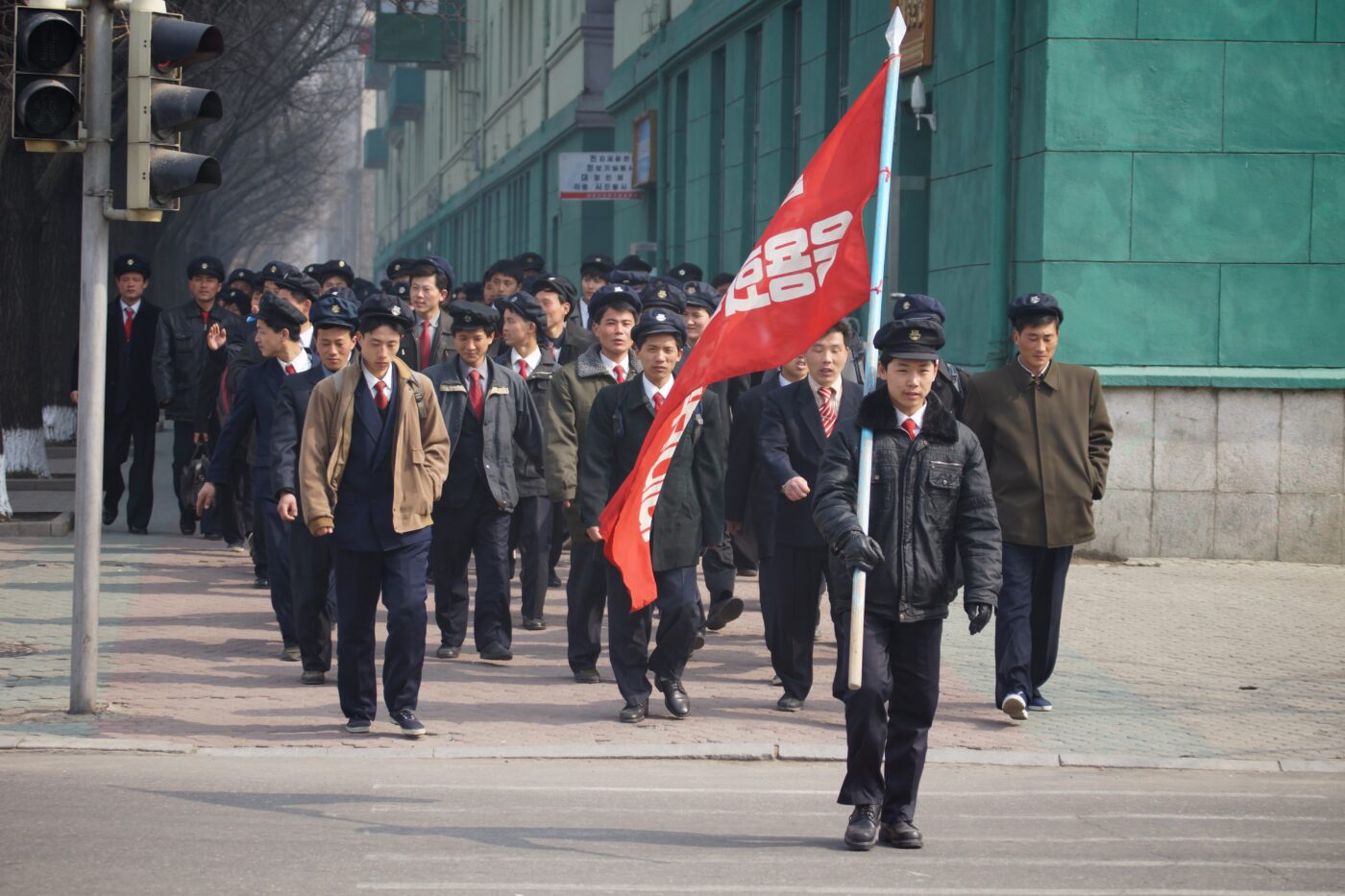
RED FLAG. North Koreans mark founding father Kim Il Sung’s 100th birth anniversary last April 2012. Photo by Joseph Ferris III for Wikimedia Commons.
NORTH KOREA’s threat to start a nuclear war is just another ploy to negotiate with and ask for further aid from South Korea, some college students in South Korea said.
“They [North Korea] are trying their best to gain attention from the world,” said Kim Ji-Eun, senior Korean linguistics and literature major at the Seoul National University. She told The GUIDON that most South Koreans do not seem to worry anymore about such threats from their neighbor.
Kim also claimed that “Koreans are now really sick of North Korea’s threatening us to achieve what they need mostly, money it is.”
Lee Juyeong Colin, industrial and systems engineering graduate student at the Korea Advanced Institute of Science and Technology, echoed Kim’s sentiments. “Actually I thought it was just a fake threat or pretending to [threaten] to ask money or rice,” he said.
Last March 31, North Korea declared that it was entering a “state of war” against South Korea and that “all the issues arousing between the north and the south will be dealt with according to the wartime regulations.”
“It’s business as usual”
As part of the escalating tensions, North Korea on April 9 warned foreigners in South Korea to consider evacuating before a possible “thermo-nuclear war” breaks out.
The statement, attributed to Pyongyang’s Asia Pacific Committee, said, “In the event of war, we don’t want foreigners living in South Korea to get hurt.”
Meanwhile, Ateneo students currently on Junior Term Abroad (JTA) in South Korea said that they are also not alarmed by the tensions, just as the locals seem to be calm about the situation.
Rico La Viña, a senior philosophy major, and Marvin Lagonera, a senior political science and economics-honors double major, both said that they are not worried despite North Korea’s wartime posturing.
“I’m not worried. I’ve talked to a lot of people here—foreigners and locals alike—and they all told me that this is just another power play. I’ll start worrying when the Koreans are panicking,” said La Viña.
Lagonera shared, “It’s business as usual here. Everyone’s calm. Because of that, I don’t really feel the tension.”
Both La Viña and Lagonera are currently studying at Sogang University for a semester.
Monitoring the developments
Lagonera also shared with The GUIDON an official statement released by Sogang University’s Office of International Affairs regarding the tensions.
A part of the statement reads, “Sogang University has not received any official instructions from the Ministry of Foreign Affairs or the Ministry of Education in South Korea regarding the situation… All South Korean universities have emergency plans in coordination with the South Korean government, and they will take effect immediately if an emergency occurs.”
Relevant offices have also been in constant communication with exchange students in South Korea, said Lagonera. These offices include Ateneo’s Office of International Relations, the Philippine Embassy and the Pinoy Iskolars sa Korea.
Addressing the tensions
North Korea’s recent threats have generally drawn flak from observers who think that the country is just trying to secure economic aid. However, for Political Science Instructor Hansley Juliano, such forms of mockery against North Korea do not help in addressing the tensions.
“The way everyone is jumping into the let’s-demonize-North-Korea bandwagon is what is contributing to the paranoia, and in turn is what motivates the North Korean government to push through with the threats,” said Juliano.
Juliano further noted, “The important issue is how to placate them apart from blowing North Korea up to kingdom come. After all, war’s foremost victims are never the belligerents but the noncombatants.”
Lee, on the other hand, said that diplomatic efforts between South Korea and North Korea should be enough to prevent aggravating the situation. “I think South Korea and North Korea and US have to solve this problem by talks, not by attacking like nuclear. I think one way could be sending emergency dispatch to North Korea to discourage the test of missile that is planned.”




